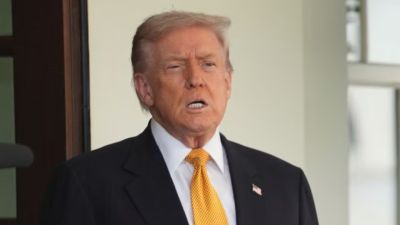Stay updated with the latest - Click here to follow us on Instagram
Om Birla re-elected as Lok Sabha Speaker: All about Speaker’s role, appointment process, and more
Om Birla, a Bharatiya Janata Party (BJP) MP from Rajasthan's Kota constituency, has been re-elected as the Speaker of the 18th Lok Sabha through a voice vote. Explore the full list of Lok Sabha speakers till date (1952-2024).
 Om Birla became the fifth Lok Sabha speaker to have two consecutive terms in the lower house of the Indian Parliament. (Source: X/@barmerpolitcs)
Om Birla became the fifth Lok Sabha speaker to have two consecutive terms in the lower house of the Indian Parliament. (Source: X/@barmerpolitcs)All you need to know about Lok Sabha Speaker: On Wednesday, June 26, 2024, the ruling BJP-led NDA nominee, Om Birla, was elected as the Speaker of the 18th Lok Sabha for a second consecutive term by a voice vote. This is a rare occurrence, as the position of Lok Sabha Speaker is typically filled through consensus between the ruling party and the opposition.
However, this year, the Lok Sabha witnessed contested election for Lok Sabha Speaker post between Om Birla, a three-time BJP MP from Rajasthan’s Kota, and the INDIA bloc’s nominee, Kodikunnil Suresh, the eight-time Congress MP from Kerala’s Mavelikara, after the Narendra Modi-led NDA government and the Opposition failed to reach a consensus.
 The contest between Om Birla and K Suresh was only the third instance after 1952 and 1976 when the Speaker of Lok Sabha was elected after an election.
The contest between Om Birla and K Suresh was only the third instance after 1952 and 1976 when the Speaker of Lok Sabha was elected after an election.
Here’s all you need to know about who is a Lok Sabha Speaker, his/her role and responsibilities, the appointment process, and more. Don’t forget to check out the list of previous Lok Sabha Speakers towards the end.
Who is the Lok Sabha Speaker?
The Lok Sabha, the Lower House of Parliament, is the highest legislative body in the country. The presiding officer of India’s Lower House of Parliament, the Lok Sabha Speaker, is the constitutional and ceremonial head of the House. He/she deals with the actual necessities and concerns of Parliament in the performance of its functions and is assisted by the secretary-general of the Lok Sabha and senior officers of the Secretariat on parliamentary activities, practice, and procedure. In the absence of the Speaker, the Deputy Speaker discharges his/her functions.
How is the Lok Sabha Speaker appointed?
According to the Indian Constitution, Article 93 provides for the election of both the Speaker and the Deputy Speaker. It is the members of the Lok Sabha who elect its presiding officer by a simple majority. The election of the Speaker is usually the first item of business in the newly constituted Lok Sabha, and the process is overseen by the Pro-tem Speaker, who is appointed by the President of India. Generally, a member belonging to the ruling party is elected as Speaker, whereas a Deputy Speaker is elected by the Opposition.
What are the responsibilities and powers of the Lok Sabha Speaker?
The Lok Sabha Speaker, appointed for 5 years, has wide-ranging powers and responsibilities, provided by the Indian Constitution. However, it is expected that they maintain strict impartiality and act in the best interests of the House as a whole rather than in the interests of any particular political party or faction. Listed below are the powers and responsibilities of the Lok Sabha Speaker:
1. Interpreter of constitutional provisions: The Lok Sabha Speaker is the final authority on the interpretation of the provisions of the Constitution of India, the Rules of Procedure and Conduct of Business of the Lok Sabha, and the parliamentary precedents within the House. Their rulings on such matters are binding on the members of the House.
2. Presiding over joint sessions: The Speaker presides over joint sittings of both houses of Parliament, which are summoned by the President to resolve deadlocks between the Lok Sabha and the Rajya Sabha on a particular bill.
3. Maintaining order and decorum: The Speaker has the power to adjourn the House or suspend a meeting in the absence of one-tenth of the total strength of the House, known as the quorum. This authority is crucial for maintaining order and ensuring the proper conduct of parliamentary proceedings.
4. Casting vote: In the event of a tie, where the House is equally divided on a question, the Speaker is entitled to cast a deciding vote, known as the ‘casting vote’
5. Deciding on money bills: The Speaker has the exclusive authority to decide whether a bill is a “money bill” or not, and this decision is final and cannot be challenged.
6. Disqualifying members: It is the Speaker who decides the questions of disqualification of a member of the Lok Sabha arising on the ground of defection under the provisions of the Tenth Schedule. The 52nd Amendment to the Indian Constitution vests this power in the Speaker.
7. Chairing committees and groups: The Speaker acts as the ex-officio chairman of the Indian Parliamentary Group (IPG), which serves as a link between the Parliament of India and the various parliaments of the world. The Speaker also chairs the conference of presiding officers of legislative bodies in the country.
8. Constituting committees: The committees of the House are constituted by the Speaker and function under his/her overall direction. The chairpersons of all parliamentary committees, the Business Advisory Committee, the General Purposes Committee, and the Rules Committee work directly under the Speaker’s chairpersonship.
9. Protecting the House’s privileges: The Speaker is the guardian of the rights and privileges of the House, its committees, and its members. It depends solely on the Speaker to refer any question of privilege to the Committee of Privileges for examination, investigation, and report.
Lok Sabha Speaker: The appointment process
There are two methods for the appointment of a Lok Sabha speaker. The ruling party nominates a candidate using the first and most practised method. After a formal consultation with the opposition party, the candidate is named the Speaker of Lok Sabha for the respective assembly.
However, in the second and less practised method, the ruling and opposition party nominates one candidate from each side for the position. The Speaker is elected based on votes cast by the present MPs of the Lok Sabha on the day of the election. Notably, in the 72 years of the Lok Sabha Assembly, the election for the Speaker post has taken place thrice, i.e., in 1952, 1976 and 2024.
A list of Lok Sabha Speakers presiding over the years (1952 – present)
The Lok Sabha, the Lower House of the Indian Parliament, has been presided over by a succession of Speakers since the first general elections in 1952. Over 18 Lok Sabha terms, the House has seen 17 Speakers take on this esteemed role. The newly appointed Om Birla, a Bharatiya Janata Party (BJP) MP from Rajasthan’s Kota constituency, has been re-elected as the Speaker of the 18th Lok Sabha through a voice vote. Notably, this is the sixth time that a Lok Sabha Speaker has been re-elected to the position and the fifth time for a consecutive second time.
| S.No | Speaker | Constituency | From | To | Party Name |
| 1 | G. V. Mavalankar | Ahmedabad | 15 May 1952 | 27 February 1956 | |
| 2 | M. A. Ayyangar | Chittoor | 8 March 1956 | 4 April 1957 |
Indian National Congress
|
| 3 | M. A. Ayyangar | Chittoor | 5 April 1957 | 31 March 1962 |
Indian National Congress
|
| 4 | Hukam Singh | Patiala | 17 April 1962 | 16 March 1967 |
Indian National Congress
|
| 5 | Neelam Sanjiva Reddy | Hindupur | 17 March 1967 | 19 July 1969 |
Indian National Congress
|
| 6 | Gurdial Singh Dhillon | Tarn Taran | 8 August 1969 | 17 March 1971 |
Indian National Congress (R)
|
| 7 | Gurdial Singh Dhillon | Tarn Taran | 22 March 1971 | 1 December 1975 |
Indian National Congress (R)
|
| 8 | Bali Ram Bhagat | Arrah | 15 January 1976 | 25 March 1977 |
Indian National Congress (R)
|
| 9 | Neelam Sanjiva Reddy | Nandyal | 26 March 1977 | 13 July 1977 | Janata Party |
| 10 | K. S. Hegde | Bangalore South | 21 July 1977 | 21 January 1980 |
Bharatiya Janata Party
|
| 11 | Balram Jakhar | Ferozpur | 22 January 1980 | 15 January 1985 |
Indian National Congress (I)
|
| 12 | Balram Jakhar | Sikar | 16 January 1985 | 18 December 1989 |
Indian National Congress (I)
|
| 13 | Rabi Ray | Kendrapara | 19 December 1989 | 9 July 1991 | Janata Dal |
| 14 | Shivraj Patil | Latur | 10 July 1991 | 22 May 1996 |
Indian National Congress (I)
|
| 15 | P. A. Sangma | Tura | 23 May 1996 | 23 March 1998 |
Indian National Congress
|
| 16 | G. M. C. Balayogi | Amalapuram | 24 March 1998 | 19 October 1999 |
Telugu Desam Party
|
| 17 | G. M. C. Balayogi | Amalapuram | 22 October 1999 |
3 March 2002 |
Telugu Desam Party
|
| 18 | Manohar Joshi | Mumbai North Central | 10 May 2002 | 2 June 2004 | Shiv Sena |
| 19 | Somnath Chatterjee | Bolpur | 4 June 2004 | 4 June 2009 |
Communist Party of India (Marxist)
|
| 20 | Meira Kumar | Sasaram | 4 June 2009 | 11 June 2014 |
Indian National Congress
|
| 21 | Sumitra Mahajan | Indore | 15 June 2014 | 17 June 2019 |
Bharatiya Janata Party
|
| 22 | Om Birla | Kota | 19 June 2019 | 24 June 2024 |
Bharatiya Janata Party
|
| 23 | Om Birla | Kota | 26 June 2024 |
Incumbent | Bharatiya Janata Party |







